#Père Lachaise cemetery
Explore tagged Tumblr posts
Text
Evidence of Napoleon’s awareness of the concept of vampires
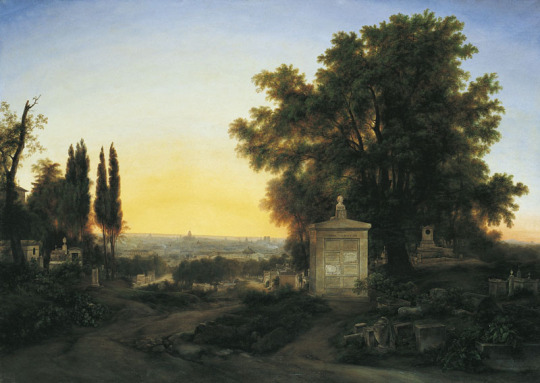
(Tombstone in Père Lachaise Cemetery, by Louise-Joséphine Sarazin de Belmont)
“They [vampires] even confronted Napoleon during his reign, as exemplified by an anecdote from the early nineteenth century about Napoleon’s reaction to a story about a strange man named Rafin who disappeared every night into Père-Lachaise Cemetery only to reappear in the morning: when Napoleon heard the this, he reputedly asked if Rafin was “a vampire” (Mozzani 1988: 212-14). Certainly, the general population across Europe at the turn of the nineteenth century found them of interest, especially as their literary place began to take hold.”
Source: Lynn, Michael R. “Wonders Never Cease: Werewolves, Vampires, and Other Curiosities in Early Modern France.” Critical and Historical Studies on the Preternatural, vol. 12 no. 1, 2023, p. 27-54.
#Père Lachaise Cemetery#Lynn#wonders never cease#vampires#napoleon#napoleon bonaparte#napoleonic era#napoleonic#Père-Lachaise Cemetery#first french empire#french empire#Paris#France#cemetery#tomb#tombstone#graveyard#history#fantasy#dark academia#1800s#art#Louise-Joséphine Sarazin de Belmont#Père-Lachaise#Père Lachaise#vampire
96 notes
·
View notes
Text
Hii 🎃💜🦇
I went to Père Lachaise Cemetery this weekend. I wanted to pay a visit to Oscar Wilde, Jim Morrison, Gertrude Stein and many, many others.
The atmosphere was quiet and beautiful, like a true Autumn, but I didn't like bothering the dead. After all, it's quite cynical to have tombs listed as tourist attraction. (I'm not kidding, check Google.)
Do you think that dead despise us for living? At one moment, I was standing in front of grave of a 18 years old. There I was, in my Sunday (punk) best, headed to a Buzzcocks concert. I felt almost guilty, what would she give to live her life to the fullest.
Next time, I will choose different way to spend afternoon.




Also, this was one of the first things near the gate.

Did I mention I'm Czech? I always felt proud of that, but at the same time, should I considering that I never want to live in that country again?
I swear, usually I'm more fun. It must be the dread of reaching my demise day by day every day.
Bye!
PS: I'm turning 21 today 🎂
7 notes
·
View notes
Text
Ahh, I accidentally saw Oscar Wilde's grave! Turns out he's buried in the graveyard Jean Valjean was buried in, so the more you know
3 notes
·
View notes
Text

Jim Morrison x Mosquitohead
#t shirt#music#aop#all over print#acid wash#mosquitohead#jim morrison#the doors#James Douglas Morrison#Pamela Courson#Feast of Friends#An American Prayer#L.A. Woman#Morrison Hotel#The Soft Parade#Waiting for the Sun#Strange Days#The Doors Are Open#Père Lachaise Cemetery#127 Fascination box#Steno Pad#The Lost Paris Tapes#HWY: An American Pastoral#Wilderness: The Lost Writings of Jim Morrison#The Lords and New Creatures#Orange County Suite#Queen of the Highway#Paul A. Rothchild#Celebration of the Lizard#When the Music's Over
7 notes
·
View notes
Text

sextoy (delphine palatsi)’s headstone in the pere lachaise cemetery in paris, france
2 notes
·
View notes
Text
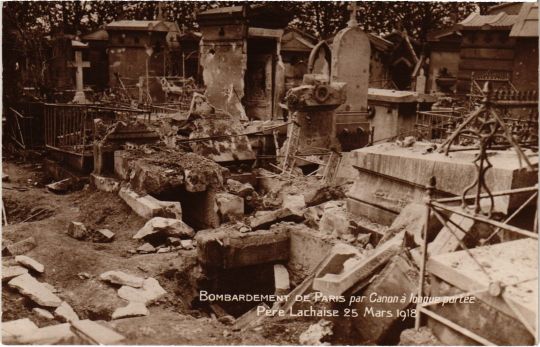
Père Lachaise Cemetery during the 1918 bombardment of Paris
French vintage postcard
#vintage#tarjeta#bombardment#briefkaart#père lachaise cemetery#lachaise#postcard#photography#postal#carte postale#sepia#cemetery#ephemera#historic#paris#french#ansichtskarte#1918#postkarte#postkaart#photo
5 notes
·
View notes
Text

Featured image: A detail of the basalt Rosetta Stone (Photo at All-len-All)
A mystery surrounds the death of a 19th century-Frenchman who unraveled a great mystery—the ancient Egyptian hieroglyphs.
Jean-Francois Champollion died young after deciphering the Rosetta Stone, which unlocked the keys to the many enigmatic and beautiful hieroglyphic texts discovered in ruins, up and down the length of Egypt.
It gave modern people a much greater understanding of that great civilization.
Champollion was born on 23 December 1790 in France and died there on 4 March 1832, after visiting Egypt in 1829.
He had felt symptoms of malaise before departing for Egypt, according to a letter to the editor of the journal Clinical Neurophysiology by Dr. Hutan Ashrafian of the Department of Surgery and Cancer, Imperial College-London.
Jean-Francois Champollion is considered amongst the greatest linguists of all time; his decipherment of ancient Egyptian hieroglyphs and the Rosetta stone has led some to consider him the ‘‘Father of Egyptology.’’
His early death at the age of forty-one has typically been ascribed to fatigue and exhaustion from overwork on a year-long visit to Egypt.
This journey is reported as having initiated his progressive demise following the return to his native France, where he died from a reported stroke two years later.’ —H. Ashrafian
Dr. Ashrafian writes that the term “stroke” is used here in a generic sense rather than a formal medical diagnosis.
His family has refused to allow an autopsy but studying reports of Champollion’s condition has led the doctor to draw some conclusions about the death of the great scholar.
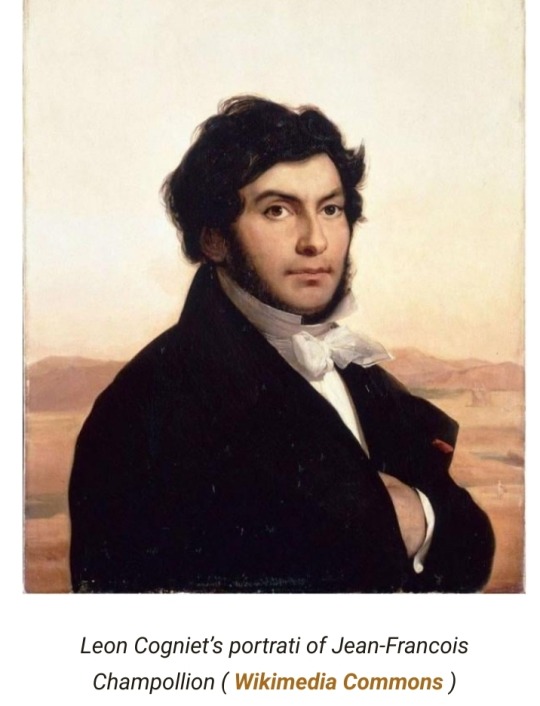
While in Egypt, Champollion did not suffer from lymph disease or fevers. But later in life, Champollion suffered from muscle weakness, limb paralysis, and ultimately, could not breathe.
He didn’t suffer from heart disease or lack of blood flow.
“Furthermore, at the moment of decipherment of hieroglyphs (1828), he is noted to have collapsed, though this may be viewed as a vasovagal [fainting] episode as a result of extreme emotional outpouring.
In his final weeks, he became emotionally labile consistent with progression of pseudobulbar dysfunction and eventually demonstrated a ‘locked-in’ syndrome before his death.”
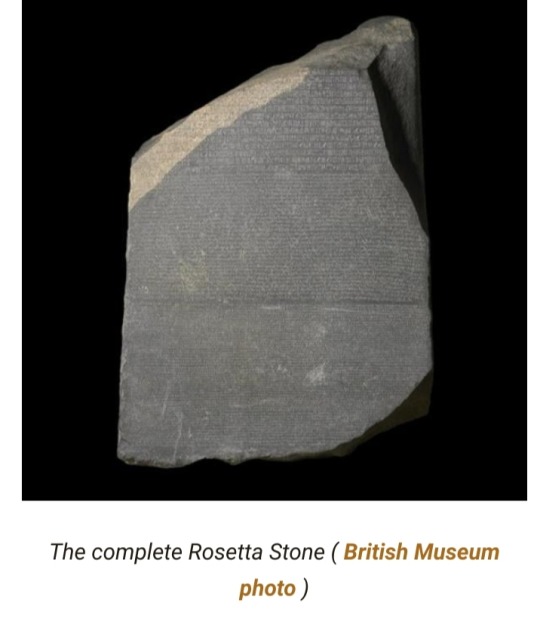
Pseudobulbar dysfunction means he was unable to speak.
It may be considered ironic that a man who gave a ‘voice’ to the people of ancient Egypt and opened their world to modern scholars like never before was unable to articulate his own thoughts just before he died.
Given that he was not mentally impaired, did not have seizures but first suffered from weakness in his legs, and later was unable to speak, led Dr. Ashrafian to conclude Champollion had amyotrophic lateral sclerosis—or total paralysis of his muscles.
Exhausted by his labors during and after his scientific expedition to Egypt, Champollion died of an apoplectic attack (stroke) in Paris on 4 March 1832 at the age of 41.
His body was buried in Père Lachaise Cemetery. On his tomb is a simple obelisk erected by his wife and a stone slab stating simply:
Ici repose Jean-François Champollion, né à Figeac dept. du Lot le 23 décembre 1790, décédé à Paris le 4 mars 1832
(Here rests Jean-François Champollion, born at Figeac, Department of the Lot, on 23 December 1790, died at Paris on 4 March 1832).
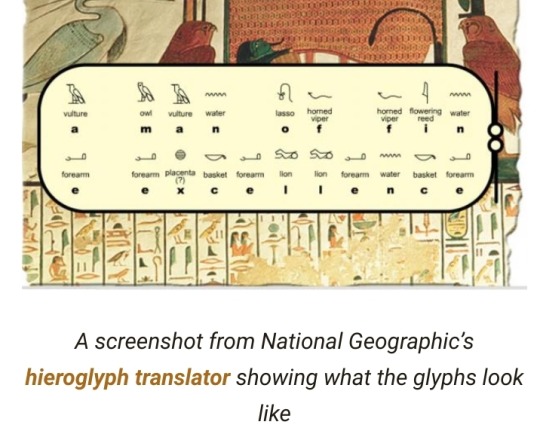
Words of the Gods
The word hieroglyph means “sacred words” or “sacred signs.”
Clement of Alexandria was the first to use the word. Ancient Egyptians called their script mdju netjer or “words of the gods.”
The first known hieroglyphs date to around 3400 to 3200 BC, the pre-dynastic era.
The last known hieroglyphs were carved in stone around 394 AD.
The Rosetta Stone, found by Frenchmen in 1799 in a fort at the town of Rosetta during Napoleon’s occupation of Egypt, has hieroglyphs, Egyptian demotic, and ancient Greek translations of the same text.
Champollion, who had taught himself ancient languages, was able to decipher its meaning and unlock the entire script.
A full translation of the Rosetta Stone can be viewed at the British Museum, which acquired the document and other artifacts after Napoleon’s defeat.
Here is an excerpt:
‘Whereas King Ptolemy, living forever, the Manifest God whose excellence is fine, son of King Ptolemy [and Queen] Arsinoe, the Father-loving Gods, is wont to do many favours for the temples of Egypt and for all those who are subject to his kingship, he being a god, the son of a god and a goddess;
and being like Horus, son of Isis and Osiris, who protects his father Osiris, and his heart being beneficent concerning the gods, since he has given much money and much grain to the temples of Egypt, [he having undertaken great expenses] in order to create peace in Egypt and to establish the temples, and having rewarded all the forces that are subject to his rulership;
and of the revenues and taxes that were in force in Egypt he had reduced some or(?) had renounced them completely, in order to cause the army and all the other people to be prosperous in his time as [king].’
Ancient Egyptians carved hieroglyphs into clay seals, rock, pottery vessels, and bone and ivory.
The Rosetta Stone scripts are carved in basalt.
#Jean-Francois Champollion#Rosetta Stone#Egyptian hieroglyphs#Père Lachaise Cemetery#hieroglyph#Clement of Alexandria#British Museum#Father of Egyptology#Ancient Egypt
41 notes
·
View notes
Text


@no_eelys looking beautiful at Père Lachaise Cemetery in Paris.
Photo by @lo.fotografi
2 notes
·
View notes
Photo
So like the Doctor Who episode with Van Gogh, but like waaaaay more queer.
Jack Harkness would definitely make an appearance.
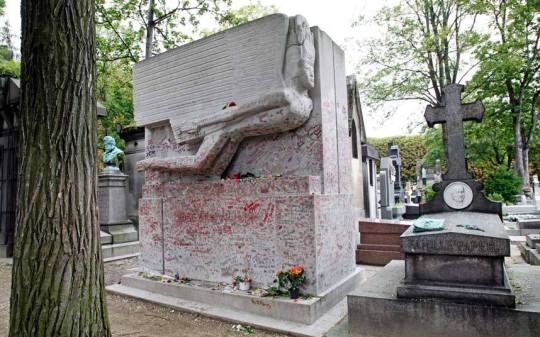
A heavily lip-sticked grave
The final resting place of author Oscar Wilde, ridden with kisses, is not the only famous grave in the Parisian Père Lachaise Cemetery. Singers Jim Morrison and Serge Gainsbourg also attract a wealth of fans and mourners who leave blessings at their gravesides, normally in the form of lighters and/or cigarettes.
#I was obsessed with#Oscar Wilde#and#frida kahlo#as a closeted queer teenager#pere lachaise#père lachaise cemetery#cemetery#tomb#grave#paris#france#lipstick
27K notes
·
View notes
Text
Marshals of the First French Empire buried at Père Lachaise Cemetery
Yesterday was the anniversary of the opening of the Père Lachaise Cemetery in Paris in 1804. @captainknell mentioned that they’re interested in seeing the tombs of the Marshals who are buried there and I realized that I actually have some pics of them. These are not all the Napoleonic figures buried there; not even close! There are actually quite a few notable figures buried at this cemetery.
Credit to the amazing photographer: Stéphane Charton-Thomas.
Marshal Suchet:
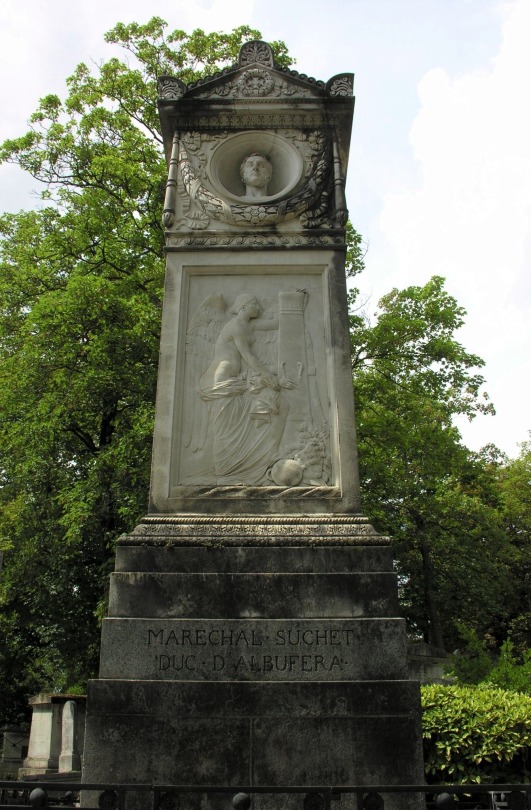

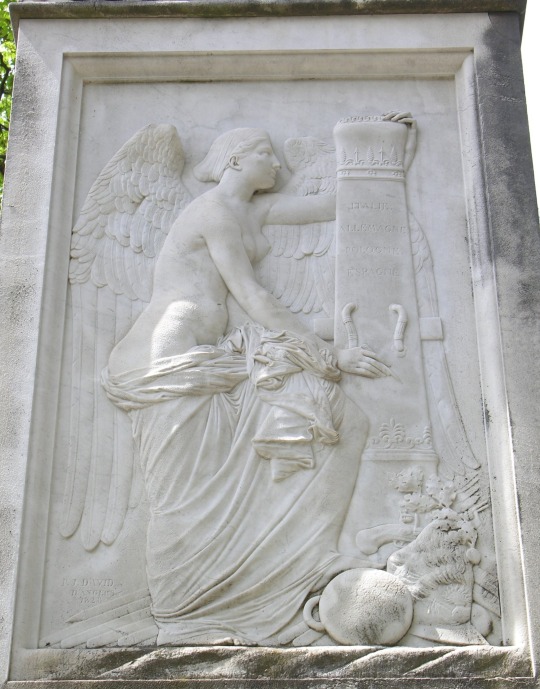
Marshal Grouchy:

Marshal Saint-Cyr:
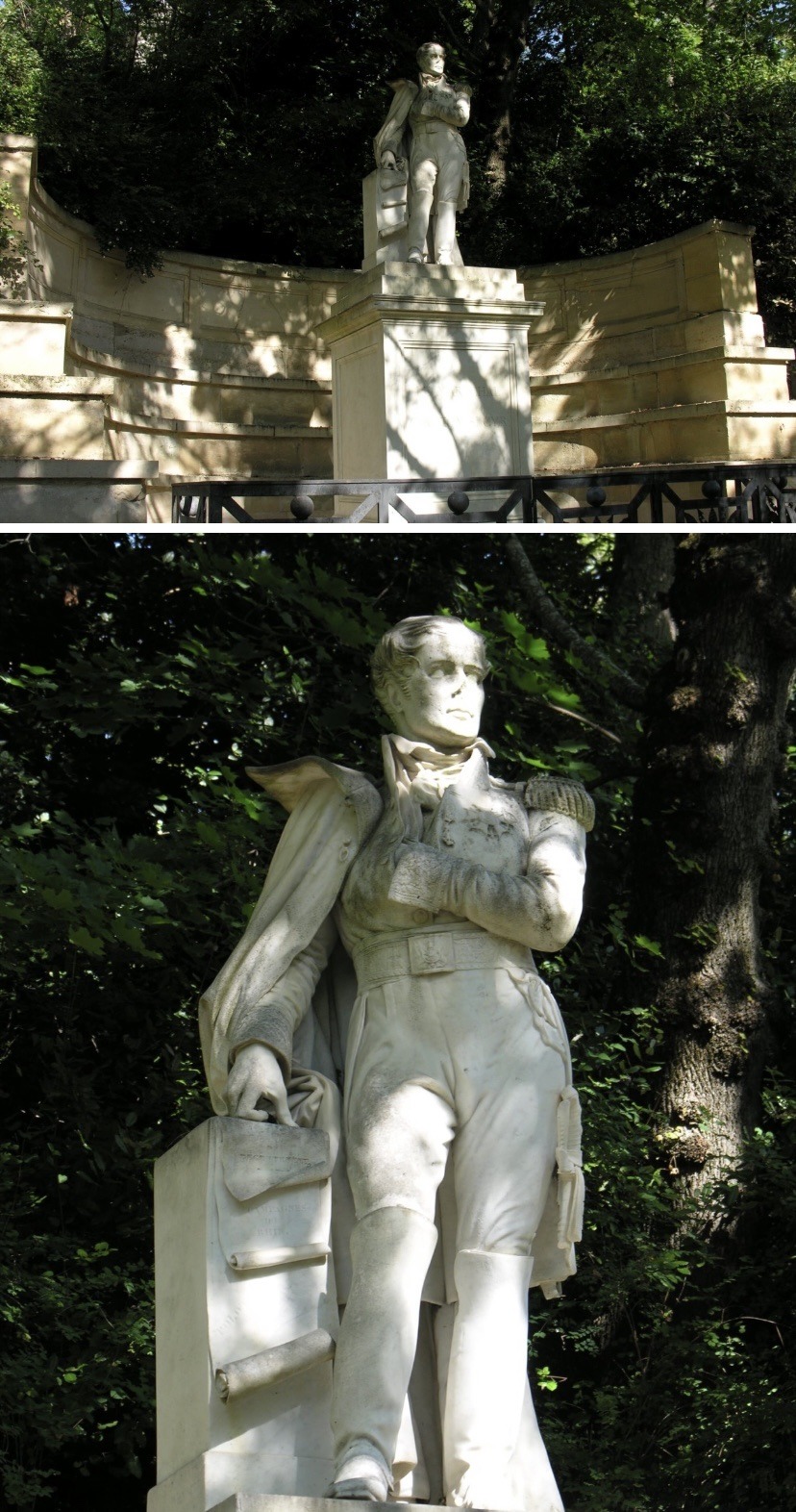
Marshal Lefebvre:
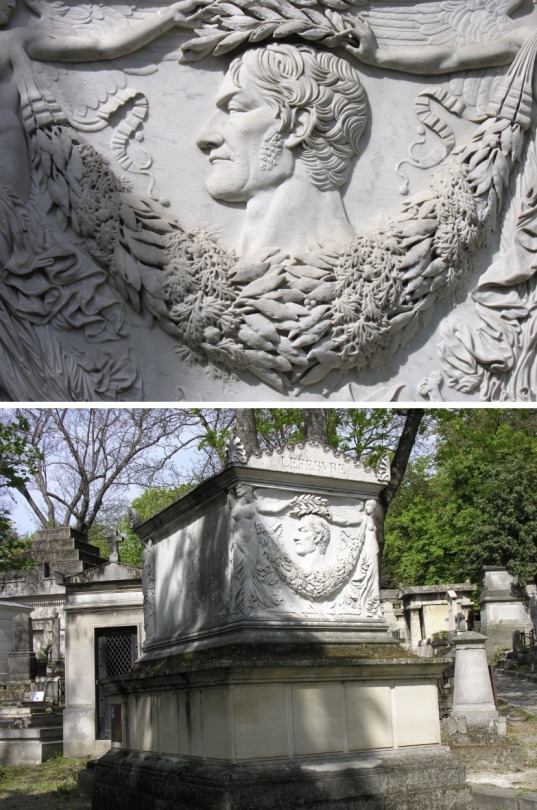
Marshal Davout:
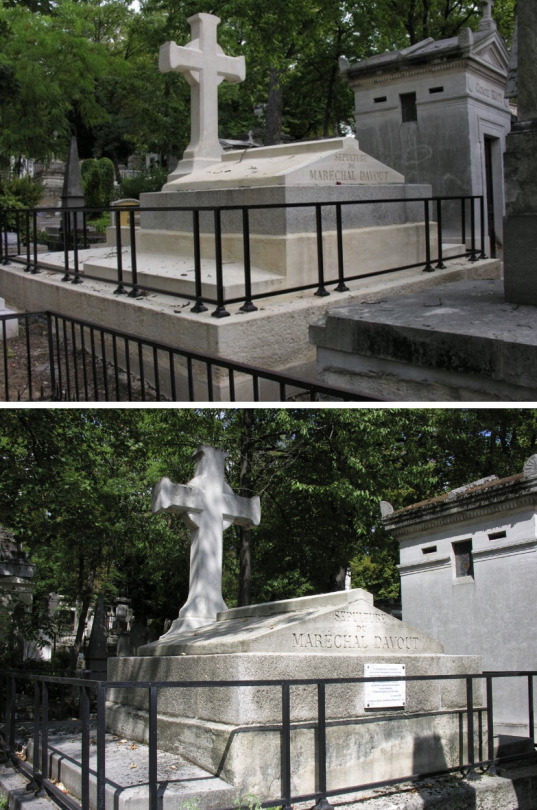
Marshal Ney:

Marshal Masséna:
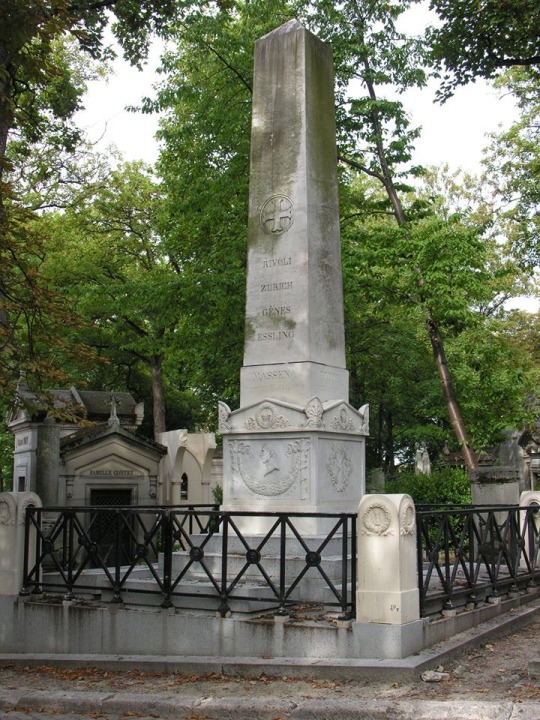
Marshal Kellermann:

#Père Lachaise Cemetery#Père-Lachaise Cemetery#cimetiere du Pere Lachaise#cimetiere#cemetery#graveyard#gravesite#tomb#tombs#tombstone#tombstones#graves#napoleon’s marshals#Suchet#Grouchy#Saint-Cyr#Lefebvre#Davout#Ney#Masséna#Kellermann#sepulcher#sepulchre#frev#french revolution#napoleonic#napoleonic era#Paris#France#first french empire
55 notes
·
View notes
Text

Helmut Newton - Père Lachaise, Tomb of Talma, Paris, 1977.
3K notes
·
View notes
Text

#t shirt#black#music#jim morrison#the doors#James Douglas Morrison#Pamela Courson#Feast of Friends#An American Prayer#L.A. Woman#Morrison Hotel#The Soft Parade#Waiting for the Sun#Strange Days#The Doors Are Open#Père Lachaise Cemetery#127 Fascination box#Steno Pad#The Lost Paris Tapes#HWY: An American Pastoral#Wilderness: The Lost Writings of Jim Morrison#The Lords and New Creatures#Orange County Suite#Queen of the Highway#Paul A. Rothchild#Celebration of the Lizard#When the Music's Over#psychedelic rock#Elektra Records#Light My Fire
2 notes
·
View notes
Photo
by Françoise Larouge, francoise-larouge.tumblr.com
Club imiging Member
Daily original photographs and creations selected by the imiging team!

Père Lachaise- l’homme et l’oiseau- Paris-Avril2022©FrançoiseLarouge
#imiging#black and white#statue#Père Lachaise Cemetery#bird#Paris#street photography#club imiging member
99 notes
·
View notes
Text




if i could i would place a kiss on oscar wilde's grave every single day 🪦🌿
42 notes
·
View notes
Text
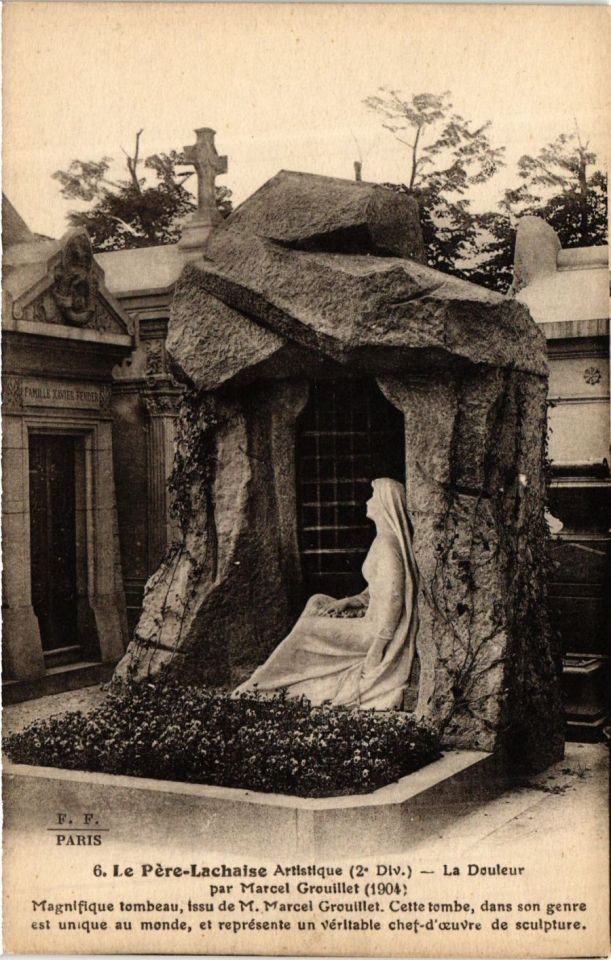
Tomb in the Père Lachaise Cemetery of Paris
French vintage postcard
#vintage#the père lachaise cemetery#tarjeta#briefkaart#lachaise#postcard#photography#postal#carte postale#sepia#cemetery#ephemera#tomb#historic#paris#french#ansichtskarte#postkarte#postkaart#photo
257 notes
·
View notes
Text

Cimetière du Père-Lachaise
Paris, France
Nov. 2016
#cemetery#Père-Lachaise#paris#france#tomb#original photography#photography#taphophile#taphophilia#lensblr#photographers on tumblr#tombs#urban exploration#urbanexploration#architecture photography#graveyard aesthetic#graveyard photography#cemetery photography#wanderingjana
25 notes
·
View notes